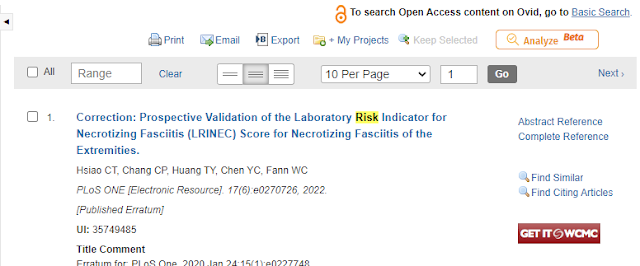Tip #23: PubMed's [tiab] vs. [tw]

Search field tags are a quick way to specify the exact fields you would like to search when using keywords. For example, I can tell PubMed to search for my term only in the title field or only in the MeSH Terms field. You can view a list of available search fields from the drop down menu in PubMed's Advanced Search Builder. Specifying field tags for keywords is also a good practice in PubMed because keywords searched without field tags will be translated through Automatic Term Mapping which may reduce the precision of your results. Here are a few sample searches in my search history, including #4 which wasn't limited to a field (notice how it was translated in the expanded search details): The fields that are included in the [title/abstract] fields are pretty self-explanatory (words and numbers included in a citation's title, collection title, abstract, other abstract and author keywords), but what is actually included in the [Text Word] (can also be searched as [tw]) fi...
